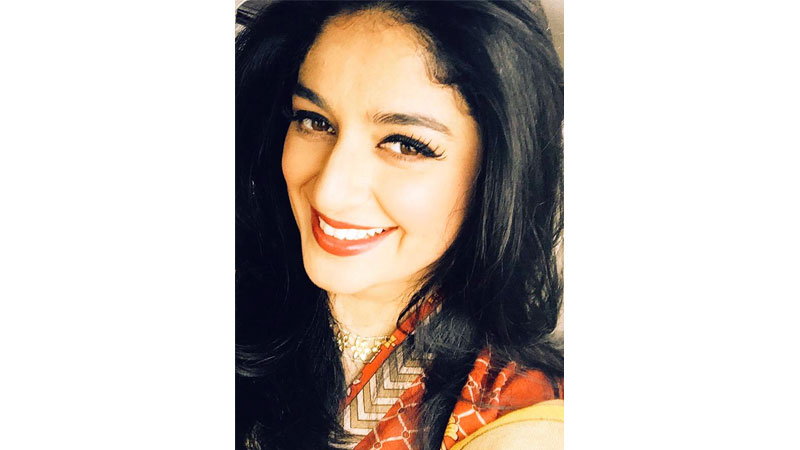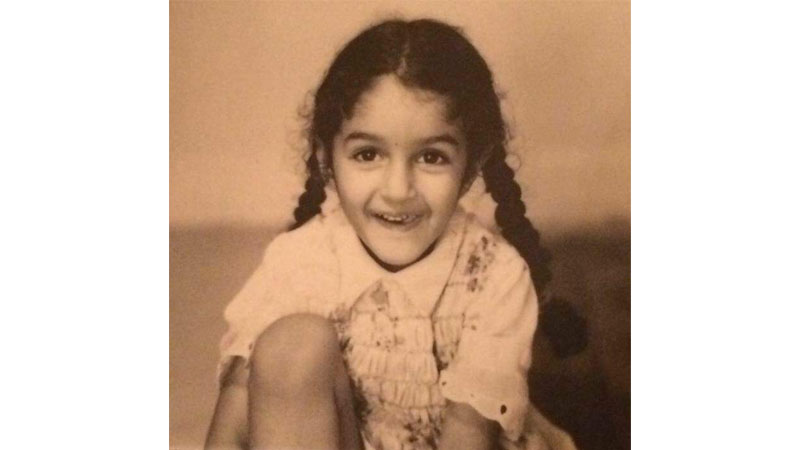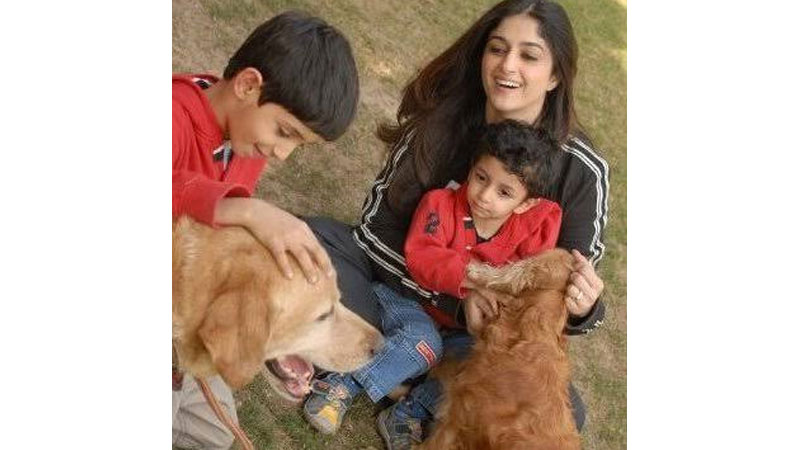Some celebrities become personalities of great stature because of their rise and struggle. Some shine strong onscreen, born to be stars and some are simply blessed with fame and good fortune with strong careers. And then there are others who use platforms of their success and standing to give back to the world because they genuinely believe in doing something good and leaving legacies behind. And amongst those influencers are the likes of Nadia Jamil; the actress who is very much in the hearts of Pakistanis as she is onscreen, as a humanitarian.
 Her battle with epilepsy has been very much in the news; however, with the added element of surviving childhood sexual trauma in her life, she has channelled these painful events to make a better world for others through her words, actions and influence. Graceful and phenomenal as she is, there is empathy, compassion, added always with the charm and wit of a highly intelligent being, stealing the hearts of thousands across the world.
Her battle with epilepsy has been very much in the news; however, with the added element of surviving childhood sexual trauma in her life, she has channelled these painful events to make a better world for others through her words, actions and influence. Graceful and phenomenal as she is, there is empathy, compassion, added always with the charm and wit of a highly intelligent being, stealing the hearts of thousands across the world.
Can you tell us a little about your background?
I was born in London. My father’s side is an old, Punjabi business family, Dehli Saudagaran. My mother is half UP and half Punjabi but the UP in her dominates majorly. My father is a Sufi lover of nature and poetry, my mother, a political activist who instilled in me a sense of responsibility to society. My father gave me the gift of romance and the love of God. I grew up surrounded by poetry, politics, music, art, theatre and God.
I have been surrounded by dialogues, Bethaks (sittings), Qawaalis, Ghazals (music) and Mushairas (poetry) of the best in all of these fields. Surrounded by people of all nationalities, religions, colour, and ethnicities without discerning between them. It was a magical childhood. Of course, it had its dark side.
How do I identify myself? First and foremost in anything, I am a mother. Since childhood that aspect has been very important to me, to be a good mom; a nurturer and the best version of a caregiver. To be able to empower and enable children, I think, has been very important to me.
My professional career is in acting so that has been an integral part of my life. I started acting at 13 with Ajoka. Never stopped since then, until I started teaching it. I love my work with children. My job is to make them smile, feel confident, feel loved and feel hope. I am most passionate about that and about taking care of my home. I love animals – love dogs the most. My best friends are trees. Children and Nature keep me honest. A commitment to honesty keeps me real.
Can you tell us about your work as a humanitarian?
My focus is on children. I work as a storyteller and teacher to use creative methods to inculcate positivity and self-confidence, hope in children. I also work as a maternal reporter figure to keep an eye on children and report mishaps to authority figures, within the infrastructures I work in.
Your new play Damsa has taken up some very interesting social topics of concern. Can you tell us a little about this?
Damsa is about Child Trafficking and the storyline details the conviction of a mother which is all it takes to overcome all obstacles. The reason why child trafficking is thriving in Pakistan is that most of us turn a blind eye towards it or feel we are helpless in changing the lives of these children. But none of us is helpless. We can all individually make even a small difference and most importantly, we can pressure the state to take responsibility and work on developing a system both within society and legally; a framework that defines parameters to protect children in Pakistan. Otherwise, no child will ever be safe.
 What made you want to do this drama series in particular?
What made you want to do this drama series in particular?
I fell in love with the story after reading the first script and found the story inspirational. It is what our society is currently – without the implementation of laws to protect our children – decaying systems which need to be upgraded, conversations which need to happen so we can create change. It was an incredible process. Najaf, the director, would make me box in the morning to pump me up and get me ready to take on the role. In all of this, my research was chilling. I spoke to mothers who have lost children to kidnappings. Some of them had found their children, while others haven’t.
Why is it necessary to tackle such issues?
We need to start caring as a nation for our people. We need to understand there are no child protection laws in place, there is no database. We need to develop our social systems and unity at the national level and we need to update our law about them. Laws are important but they evolve and change with time and the age you’re living in. We are working with archaic systems which have disabled our child protection laws, and giving you just a simple example, is a fact that we cannot even agree according to our laws, what the definition of a child is.
I am not very good at getting justice by naming and shaming and I also don’t want to make a drama or sensationalise my own life. It is not about me; my focus is about the children I work with; it’s not me who needs this but them. And it’s not just our children, it is all survivors of any type of abuse. We need a system in place immediately and we need it as a country to progress.
What made you take a stand as a survivor?
The child that was hurt is inside me. She does it for herself. She does it for others like her. It doesn’t have to be sexual abuse, any abuse triggers fear, anger, loneliness, insecurities, mistrust in a little heart; mind. That little one forgets how to play, how to make friends. Keeps waiting for some rescue operation.
I’m there to teach them what I learned, to be their own best friend, to be their rescue operation. They are not victims; they are survivors; they are champions already. Life is hard for them, but I don’t mollycoddle them. They have to live tough and learn to soften their hearts to their blessings. It’s amazing working with children who have nothing. Because they reach into my heart and teach me, even as they learn themselves, to see how everything is a blessing, clean water, a warm bed, toilets, food, nature, sports, friends, oneself. It is a process of self-discovery with children. Always. Teaching is a process of self-discovery. Acting is also. So it’s always exciting.
Is it difficult to deal with all these stories? The labour of love is always difficult, like childbirth.
What makes you feel alive?
Living. I’m either numb, dead, a zombie with no will, or I am alive, in love, in pain, in fear. Even stillness, silence or solitude are a choice. So one is never lonely, even if one is alone. And one can be at peace with it.
 In the face of challenges?
In the face of challenges?
I am my competition, everyone else I learn from. Either you learn what to be or what not to be. Online “heckling” or negativity of any kind doesn’t bother me.
Everyone has a right to express themselves. Those who haven’t learned or been taught to do so respectfully, do so without respect. So wherever I can I focus on the many blessings I am surrounded with; trees, the sky, clean air, water, good food, family, friends, knowledge, music, art and prayer…
How do I stay positive?
Every second is a new chance to live again. That opportunity keeps me positive. Every second of sadness comes with its share of blessings and potential. Look around you. Watch how you can make a child smile. Play with a puppy. Learn from a tree. Watch the sky change colour or listen to birds singing. Poach an egg and eat it with chilli flakes. There is so much to be grateful for!
Words that have stayed with me
Mother Teresa’s saying, “Peace begins with a smile.”
Abdul Sattar Edhi Sahab’s answer to my question, how could he bear seeing so much pain knowing it is endless…he said, and I quote, “Qudrat hain” (They are creation). And of course, words from the Quran such as Surah Rahman and Surah Fatiha. Faiz Ahmed Faiz’s poem, Mere Humdum Mere Dost (My Companion, my friend), something I read to my children and students as it changed my life.
The people that hold me together
My Nani (Maternal grandmother) was a person who taught me how to smile through everything and laugh out loud. Ami (my mother) has been my soldier in life and my father, my philosophical angel. They keep me balanced. I have amazing friends who keep me grounded. As do my in-laws. My mother-in-law inspired me to be a better mother. My father-in-law taught me to never give up. My brother taught me to think before I speak. And the children I work with… All these amazing teachers around me.
How this journey started
I was exposed to the invasiveness of men who lacked self-control early in life. Child abuse allows patterns to set in where people accept abuse as normal. The most idyllic childhood has dark places, and that was mine.
I have learned over the years that many men, most men actually, see women as they see land to own, be proud of owning like a status symbol. Their respect and honour are tied into the body of a woman. So when they want to hurt an enemy, they hurt a woman in his family. If a woman is abused, they see it as their property being dirtied.
It took time for me to take ownership of myself and learn to respect and love myself. No man’s honour is tied up in my body. Any man who thinks like this isn’t a man I can respect. Women need to break these patriarchal shackles in their minds. My respect is in my own hands. I earn it. I know only my actions can compromise it, therefore I value dignity.





